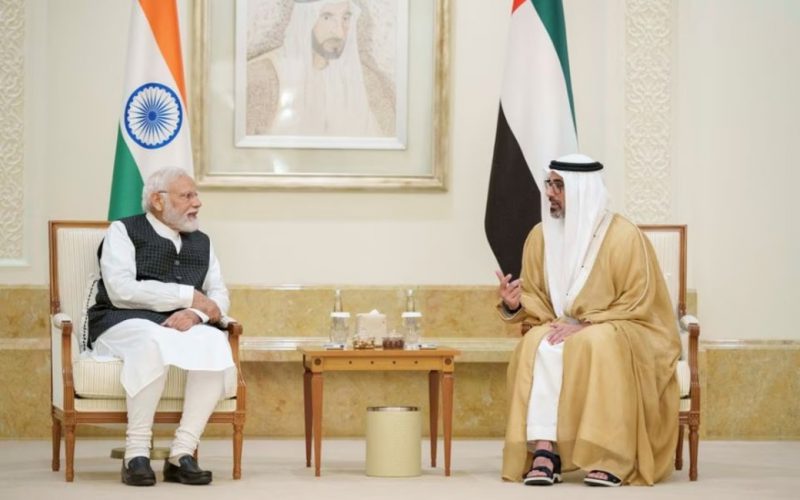In a notable development between the two BRICS allied nations, both the United Arab Emirates (UAE) and India have strengthened ties with a $3 billion Agreement. Indeed, Reuters reported that a Memorandum of Understanding was signed according to the Dubai Media Office.
The agreement is set to cover things like the creation of new port terminals and “economic zones in the Indian state,” the report notes. Moreover, it is another example of both countries increasing bilateral cooperation, especially as the UAE was admitted to the BRICS bloc at the start of the new year.
Also Read: BRICS: China Stockpiles Gold for 14 Consecutive Months, Buys 9 Tonnes
India and UAE Sign $3 Billion MoU Agreement to Kick Off BRICS Partnership
A key global development of the last year was the growth of the BRICS alliance. Although the economic bloc has been in existence for nearly two decades, it has yet to receive the prominence increase it got in 2023. Subsequently, it was capped by its expanded membership, welcoming five new countries to the alliance.
Announced at the 2023 Annual Summit but being made official in 2024, the new countries have wasted no time. Subsequently, two new BRICS allies, India and the UAE, have just signed a $3 billion agreement. Moreover, the development continues to expand the two nations’ rather fruitful bilateral partnership over the last several years.
Also Read: BRICS Presence Could End US Dollar in Global Energy Market
Additionally, the two countries agreed to another three agreements during a meeting that took place this week. Specifically, India’s Prime Minister, Narendra Modi, and UAE President Mohamed bin Zayed Al Nahyan met to increase their bilateral cooperation in a host of different arenas.
Among the sectors to be affected are things like food processing and renewable energy. Conversely, this is the fourth meeting between the countries in less than seven months. The cooperative relationship has been noted as rapidly evolving the nation’s coexistence. Subsequently, they have collectively embraced their hopes for a prosperous future.
Previously, both countries agreed on a landmark oil deal. Specifically, the agreement would settle their oil trades in local currencies, ditching the US Dollar. The development was poised to have ramifications on the greenback internationally and aligns with greater BRICS hopes for de-dollarization.





